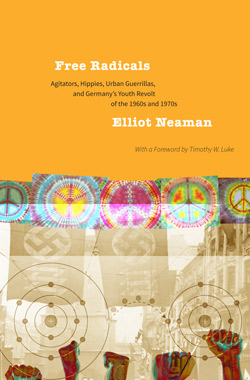By Telos Press · Monday, October 10, 2016 “Dutschke’s phrase ‘the long march’ managed to combine both Mao and Trotsky, since the contemporary Trotskyite strategy was ‘enterism,’ that is, the infiltration of institutions such as trade unions and universities and their subversion from the inside. For the humorless Dutschke and his unlikely collaborator, the bon vivant scion of a grand bourgeois Chilean family Gaston Salvatore, the armed struggle in the Third World was dialectically connected to the sabotage tactics of the urban guerrillas in the developed world. The phrase that Dutschke took from Guevara, ‘Create two, three, many Vietnams,’ was not just a slogan designed to ignite the passions of the crowds. He very seriously conceived of the student revolution in 1967–68 as an integral part of a global anti-imperialist, anti-colonial struggle.”
—Elliot Neaman, Free Radicals: Agitators, Hippies, Urban Guerrillas, and Germany’s Youth Revolt of the 1960s and 1970s
Continue reading →
By Telos Press · Monday, October 3, 2016 Elliot Neaman’s Free Radicals: Agitators, Hippies, Urban Guerrillas and Germany’s Youth Revolt of the 1960s and 1970s is now available for purchase in our online store. Save 20% on the list price by using the coupon code BOOKS20 during the checkout process. Also available in ebook format at Amazon.com (Kindle) and Barnes & Noble (NOOK).
Free Radicals
Agitators, Hippies, Urban Guerrillas, and Germany’s
Youth Revolt of the 1960s and 1970s
 by Elliot Neaman by Elliot Neaman
With a Foreword by Timothy W. Luke
Elliot Neaman’s Free Radicals presents a comprehensive panorama of the West German youth revolt in the 1960s, as well as its subsequent fragmentation and descent into terrorism in the 1970s. Neaman argues that the activists of the 1960s fundamentally misconstrued the nature of the young German republic, conflating it with earlier problematic German polities, and offered hazy world-shattering utopias to replace it based on artificial historical comparisons. The student radicals at first were swept along by liberalizing forces, but then made a decisive turn against reform in favor of an aggressive rejection of the existing order.
Continue reading →
|
|



